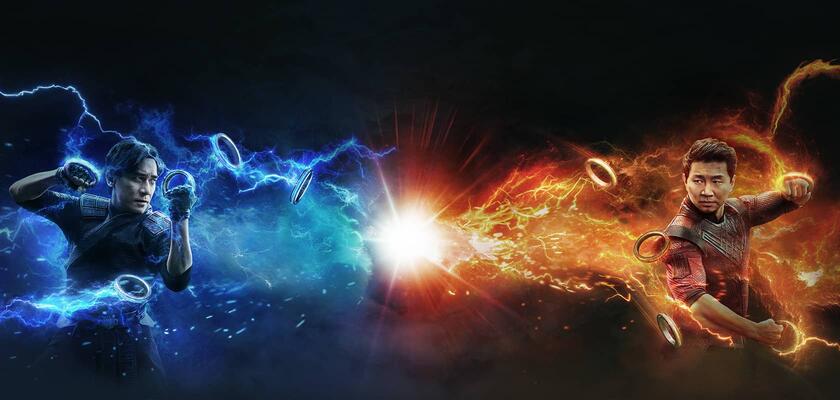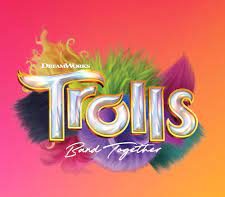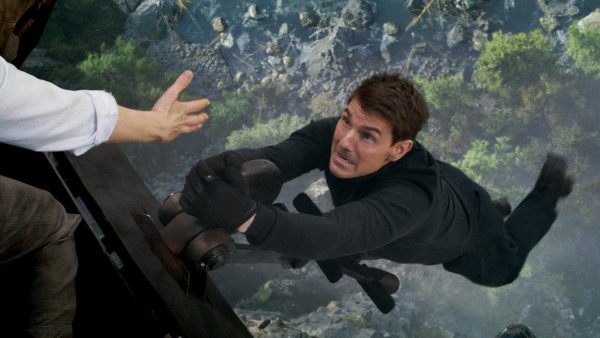Shang-Chi and How We All Need a Legendary Movie
October 19, 2021
My first encounter with the newest Marvel movie was by chance. I was watching the Summer Olympics in a daze, letting the commercials and sports play without really knowing the difference between them. Then I saw the bright colors, epic backdrops, and brilliant sound effects. Which I had all seen before. I prepared for my eyes to glaze over again, but I realized: it was with new actors—for once, people who looked like me.
I was immediately drawn to Shang-Chi, as much as I was immediately skeptical. Part of me thought it must’ve been too good to be true; the other part of me wanted so badly to hope that it was. If anything is made in America with a remotely Asian cast or setting, it’s such a rare occurrence that I gravitate toward it. I’m always hoping to find something of my own in those movies, something I can relate to and maybe even call home. But as much as I hope, I’ve also learned that I have to tiptoe around some movies. Some depict Asians in criminal deals, mock our looks, and gripe that we’re too successful. Granted, most of these are old and outdated, but that also means it’s been a lesson I’ve grown up with.
But Shang-Chi and the Legend of the Ten Rings was quickly confirmed to not be one of those movies. For one, Shang-Chi was pronounced properly with no shayng or chai slips. For two, the directors and writers were Asian-American. On paper, these sound trivial, but it is so relieving to know that the people behind the screen have been burned the way I have by harmful representation before and that they care as much as I do to avoid that.
As a disclaimer: I wouldn’t consider myself a Marvel fan. I’ve seen two Marvel movies before this one, both sequels, both because I was at a friend’s house. If you wanted extensive theories on the MCU, you won’t find them here. To me, the Marvel branding isn’t the most important thing about Shang-Chi, though the beautiful action sequences and coordinated fight scenes are certainly a plus. I found an emotional resonance with its story, its hero, and even its antagonist.
As another disclaimer: I am not a 25-year-old martial artist (I hesitate to even call myself fit), and my father is not an immortal leader of an international assassin organization. The extent of it is that my dad shakes his fist at outrageous news on TV and stabs viciously at biscuits with a fork. But my dad, like Shang-Chi’s father Wenwu, is fiercely driven. He arrived in America alone, learned English, and carved out a living for himself here as, he brags, “the Data King”.
Like Wenwu, who takes time to school Shang-Chi in English along with Mandarin, who claims that his men “couldn’t kill his children if they tried”, my father stubbornly believes in his children’s talents. Our mentalities are our greatest strengths, he says, but we can’t neglect to train our physical bodies, either. He knows that I’ll be fine and that things will work out even if I don’t think they will, and he makes sure to tell me such. I admire my father’s ambition as much as Shang-Chi is frightened by his father’s, and we both struggle to live up to our fathers’ images.
Like Shang-Chi, I find that, in the end, everything comes back to my family. Shang-Chi is stuck between two worlds: America and the home that he made for himself, his father in a more traditional, strict setting. As a child of two first-generation Asian immigrants, I find myself in a similar conflict. My parents want the best for me, so they push me to be the best. I’ve learned from them that we have to work hard in this world if we want to succeed in it—and that if I want to succeed, I should follow their lead. In a country where we are so explicitly different, it’s sometimes hard to. At times, I want to run away like Shang-Chi, immerse myself fully in America, and never look back. So I understand part of his struggle, how he attempts to strike a balance between the home he grew up in and the world he knows. My experience is the classic diaspora experience, one foot in the old world and the other foot in the new world, never truly belonging in a singular place. Seeing all of that play out on the big screen, played up with CGI and fantasy battles, somehow puts me at ease. Seeing Shang-Chi finally reconcile with his heritage gives me hope that I can do the same.
Of course, our stories aren’t equal, but the emotional core behind them is. To me, Shang-Chi is a wonderfully refreshing experience and depiction of the immigrant family dynamic. Along with that, it’s really just visually stunning. It’s a great, heroic return to big cinema, all while highlighting underrepresented experiences. It’s a movie that I can find home in, even as Shang-Chi and I both struggle to define where exactly that is for us.






